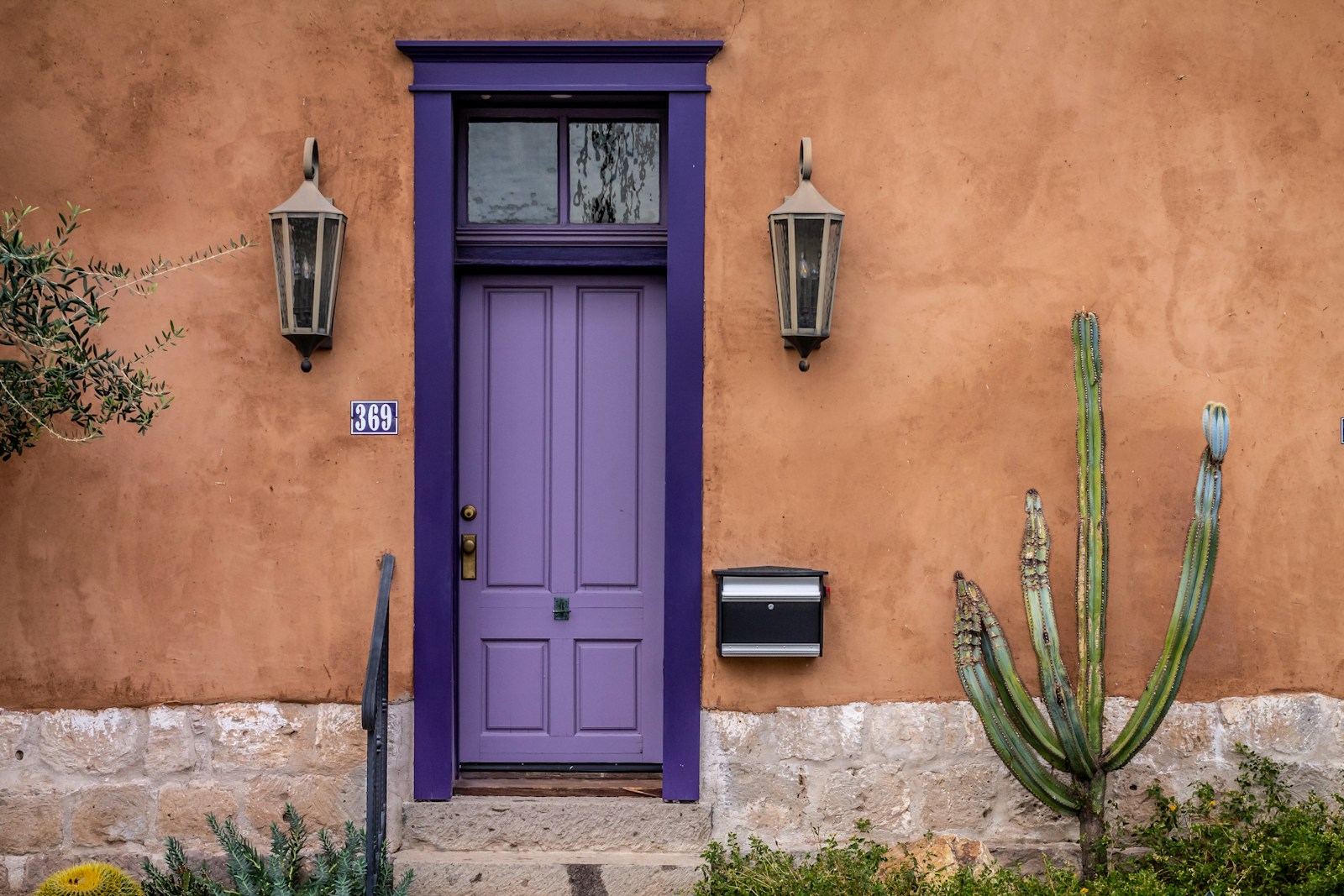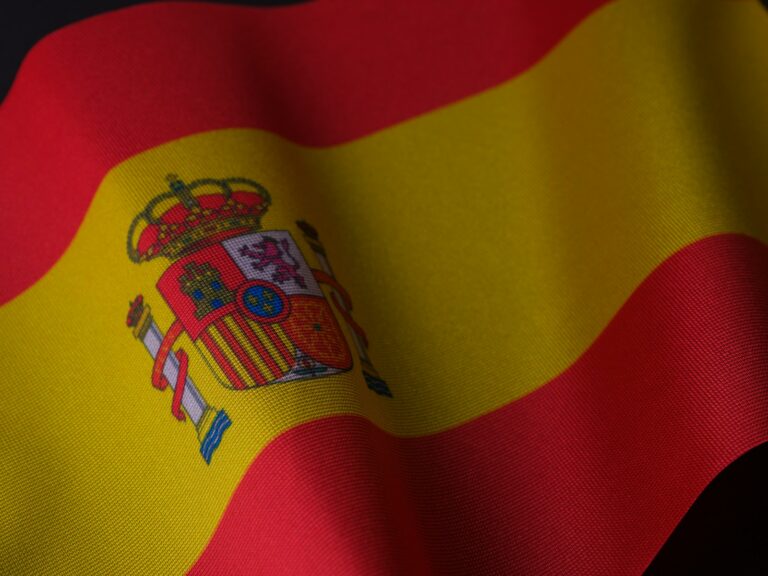What does “Punta Gorda” mean in Spanish? Explained
Ever found yourself daydreaming about a tropical getaway and stumbled upon the name Punta Gorda? It’s one of those names that seems to whisper promises of sun-soaked beaches and swaying palm trees. But then you wonder, what does Punta Gorda actually mean in Spanish?
Imagine you’re planning your next vacation, and you want to impress your friends with a bit of local knowledge. Knowing the meaning behind the name can add a whole new layer of appreciation for your destination. Punta Gorda literally translates to “Fat Point” in Spanish. It might sound funny at first, but there’s a rich history and cultural significance behind it that’s worth exploring.
Understanding “Punta Gorda” in Spanish
Ever wonder what Punta Gorda means when you see it on a map? It’s a phrase with roots in the Spanish language, and understanding it can add richness to your travel experiences. Let’s break it down together.
Breaking Down the Phrase
To really get the meaning of Punta Gorda, we need to look at each word individually. This not only helps in translation but also adds to understanding its usage in different contexts.
Meaning of “Punta”
Punta translates to “point” in English. Picture a sharp cape jutting out into the ocean or a promontory stretching into a lake. It’s about natural formations that get people’s attention when they map a new area or highlight a destination. Fascinating, isn’t it?
Meaning of “Gorda”
Gorda translates to “fat” or “thick.” But, in the context of geographic terms like Punta Gorda, it generally means “large” or “broad.” Think more along the lines of a wide or expansive point.
Literal Translation to English
Literal translations can sometimes be amusing. Punta Gorda literally means “Fat Point” or “Broad Point.” While it may seem funny at first, these translations reflect how Spanish-speaking explorers described the places they discovered. Such names were practical and descriptive.
Contextual Meaning in Spanish
In Spanish-speaking regions, place names like Punta Gorda carry both geographic and cultural significance. When explorers named these features, they conveyed the essence of the land. By understanding these names, you gain insight into how early explorers saw the world.
Quick Reference Table
Below is a quick reference table to summarize the meanings:
Spanish Term | English Translation | Geographic Context |
|---|---|---|
Punta | Point | A cape, promontory, or sharp land extending into water |
Gorda | Fat/Thick (Context: Broad/Large) | Expansive, wide area |
Why should this matter to you?
Knowing what Punta Gorda means enriches your understanding of the places you visit. It’s like revealing a piece of history through language. So next time you see Punta Gorda on a map or road sign, you’ll know you’re looking at a significant, broad point discovered by keen explorers of the past.
The Significance of “Punta Gorda” as a Place Name
Ever wondered why some places have such intriguing names? “Punta Gorda” translates to “Fat Point,” and it carries more history and context than you might think. It’s a name that not only describes geographical features but also encapsulates a slice of exploration history.
Historical Background of the Term
Imagine you’re a Spanish explorer exploring the New World, and you come across a broad promontory jutting into the sea. How do you name it? You’d probably use something descriptive, right? That’s exactly where “Punta Gorda” comes in. Spanish settlers frequently named points or headlands based on their appearance. “Punta” means “point,” and “gorda” means “fat,” highlighting a place that is broader or more rounded. This naming practice dates back to the times when geographical features were critical markers for navigation.
Geographical Features Associated with “Punta Gorda”
At its core, “Punta Gorda” refers to a unique type of geographical feature. Picture a headland protruding into a body of water, whether it’s a lake, ocean, or sea. Unlike sharp, narrow points, these promontories are wide and rounded. The term aptly describes places like Punta Gorda in Belize and Punta Gorda, Florida, with their expansive, protruding landscapes.
Here’s a quick comparison table of different “Punta Gorda” locations:
Location | Country | Notable Features |
|---|---|---|
Punta Gorda, Belize | Belize | Coastal town, rainforest |
Punta Gorda, Florida | USA | Waterfront, boating hub |
Why Spanish Speakers Use “Punta Gorda” for Locations
So, why do these names persist? For one, they offer a vividly descriptive name that instantly conveys the nature of the location. In a world where geography could mean the difference between safety and danger, clear descriptors were vital. When you hear “Punta Gorda,” you’re not just hearing a name; you’re getting a mini topographical map in your head—a broad promontory sticking out into the water.
Think about it: Isn’t it fascinating how language can capture and preserve the essence of a place? Understanding these names connects you to the early explorers’ worldview, making your travels richer and more meaningful.
Famous “Punta Gorda” Locations Around the World
The term Punta Gorda translates to “Fat Point” and is used in many locations. But what makes these places worth your attention? Let’s dig into it.
Punta Gorda, Florida: An English Speaker’s Guide
Punta Gorda, Florida, is known for its charming historic downtown and beautiful waterfront parks. Located in Charlotte County, it’s a perfect mix of history and natural beauty. If you love strolling through streets lined with quaint shops or taking a relaxing walk by the harbor, this city’s got something for you. You might find yourself imagining what life was like when early explorers first arrived here, naming it after its prominent point.
Other Notable “Punta Gorda” Places
What about other places sharing this intriguing name? Each has its own unique flavor.
Punta Gorda, Belize
Located in southern Belize, Punta Gorda stands out for its rich cultural heritage. Known as PG to locals, it’s a melting pot of cultures. Here, you’ll find a significant Garifuna population alongside Creole influences. The town’s natural beauty is complemented by vibrant cultural traditions and stunning landscapes. Festivals, local music, and friendly faces create a unique experience that reflects the heart of Belize.
Punta Gorda, Cuba
A small coastal town in eastern Cuba, Punta Gorda offers scenic beaches and a thriving fishing industry. If you visit, you’ll experience authentic Cuban life, connecting with the locals who depend on fishing for their livelihood. The serene beaches invite you to relax, soak up the sun, and enjoy the simple pleasures of coastal living.
What These Locations Have in Common
These Punta Gorda locations, although varied, share common themes. They all emphasize their geographical features, reflecting the Spanish influence on naming. Whether it’s the bustling vibe of Belize, the historic charm of Florida, or the tranquil scenery of Cuba, each place invites you to explore and connect with its unique story.
Location | Key Features |
|---|---|
Punta Gorda, Florida | Historic downtown, waterfront parks |
Punta Gorda, Belize | Cultural heritage, natural beauty |
Punta Gorda, Cuba | Scenic beaches, fishing industry |
Isn’t it fascinating how a simple name can link diverse places, each with its own story to tell? Why not add these unique spots to your travel bucket list and experience their charm firsthand?
Using “Punta Gorda” in Everyday Spanish Conversations
Ever wondered how Punta Gorda translates into conversational Spanish? Jump into how natives use it and explore common phrases, along with cultural nuances that English speakers should know.
How Native Speakers Use the Term
In everyday Spanish, Punta Gorda typically describes geographical features. Imagine you’re in a coastal town and someone points out a wide, rounded cape—they’d call it a punta gorda. Natives might use it in conversations like this: “Vamos a la punta gorda para ver la puesta del sol,” which means “Let’s go to the Punta Gorda to watch the sunset.”
Common Phrases Including “Punta Gorda”
You’ll find Punta Gorda in several common phrases that locals use. Here’s a quick table to help you out:
Spanish Phrase | English Translation | Context |
|---|---|---|
Ir a la Punta Gorda | Go to the Punta Gorda | Visiting a broad cape |
La bahía de Punta Gorda | The Bay of Punta Gorda | Describing a specific location |
Paseo por Punta Gorda | Walk through Punta Gorda | Leisure activity |
These phrases can bring your Spanish conversations to life, giving you a taste of native-speaking experiences.
Cultural Nuances English Speakers Should Know
If you’re an English speaker, understanding cultural context helps. Punta Gorda is more than a name—it’s a descriptor linked to geography and emotion. Think of how we name places based on their looks, like “Long Beach” or “Big Sky.” Spanish speakers find meaning and stories in these terms, often attaching local lore or significance to them. In Belize, for example, Punta Gorda isn’t just a town; it’s a hub of cultural heritage and diversity. Knowing this adds depth to your conversations, making you sound more like a local.
Connecting with native speakers on this level can enrich your travel experiences. Why stop at just visiting places when you can also partake in meaningful exchanges?
Similar Spanish Geographical Terms English Speakers Should Know
Understanding Spanish geographical terms can make your travels richer. You’ll connect more with locals and appreciate the landscapes better.
“Cabo” vs “Punta”: Key Differences
Spanish offers precise terms for different coastal features. Let’s jump into cabo and punta, often confused.
Think of it this way: if cabo is the bold exclamation at the end of a sentence, punta is a subtle comma, gently guiding the direction.
Other Important Spanish Geographical Words
Spanish terms for geographical features offer rich insights into the world. They help us appreciate nature’s diversity.
Bahía (Bay)
A bahía is a body of water partially enclosed by land. Bays like Bahía de Cádiz in Spain provide safe harbors for ships. Imagine a hug from the ocean, embracing the land with gentle waves.
Playa (Beach)
Playa means beach. Think of sandy shores where people relax under the sun. Famous playas include Playa del Carmen in Mexico. Isn’t playa already making you think of a perfect beach day?
Isla (Island)
An isla is a piece of land surrounded by water. Isla de Pascua (Easter Island) in Chile and Islas Baleares (Balearic Islands) in Spain are prime examples. Picture an island getaway, totally isolated and serene.
How These Terms Shape Spanish Place Names
Spanish place names often derive from these geographical terms, providing clues about the world. For instance, Bahía Blanca in Argentina signifies a white bay, while Isla Mujeres in Mexico translates to Island of Women. Not only do these names describe the environment, but they also pique curiosity and invite exploration.
By grasping these terms, you unlock a new level of cultural and geographical understanding, enriching your travel experiences.
Conclusion: Why Understanding “Punta Gorda” Enhances Your Spanish Skills
Diving into the meaning and usage of “Punta Gorda” opens up a fascinating window into Spanish language and culture. You gain insight into how Spanish explorers named various landscapes and why these names have stood the test of time.
By understanding terms like “Punta,” “Cabo,” and “Bahía,” you not only enhance your vocabulary but also deepen your connection with Spanish-speaking regions. This knowledge enriches your travel experiences, allowing you to connect more meaningfully with locals and appreciate the natural beauty around you.
So next time you come across a “Punta Gorda” on a map or in conversation, you’ll have a richer understanding of its significance and the cultural stories it carries.
Frequently Asked Questions
What is the historical significance of the name “Punta Gorda”?
“Punta Gorda” translates to “Fat Point” in English and was named by Spanish explorers based on the prominent protrusion of the land they observed. These names were useful for navigation purposes.
Where can the name “Punta Gorda” be found geographically?
The name “Punta Gorda” can be found in various locations worldwide, notably in the United States, Belize, and Spain. Each location typically features a prominent landscape or geographical pointer.
How is “Punta Gorda” used in everyday Spanish?
In everyday Spanish, “Punta Gorda” can refer to a noticeable geographical point or be part of idiomatic expressions, reflecting the prominence or importance of a location.
What is the difference between “Cabo” and “Punta”?
Both “Cabo” and “Punta” refer to geographical points, but “Cabo” often denotes a larger or more significant cape or headland, whereas “Punta” is usually a smaller point.
Can you give examples of famous locations named “Punta”?
Famous locations include Punta Gorda, Florida (USA), Punta Gorda, Belize, and Punta Gorda, Spain. Each has its unique regional characteristics and historical significance.
What other Spanish geographical terms are commonly used?
Other common Spanish geographical terms include “Bahía” (Bay), “Playa” (Beach), and “Isla” (Island). These terms regularly appear in Spanish place names, enriching cultural and geographical understanding.
How do Spanish geographical terms enhance travel experiences?
Understanding terms like “Punta,” “Cabo,” and “Bahía” offers deeper cultural insights and enables travelers to connect better with locals and appreciate the landscapes around them.
Is “Punta Gorda” a large area?
The size of an area named “Punta Gorda” varies by location. For instance, Punta Gorda, Florida is a relatively expansive city, while other locations might be smaller and more localized.






